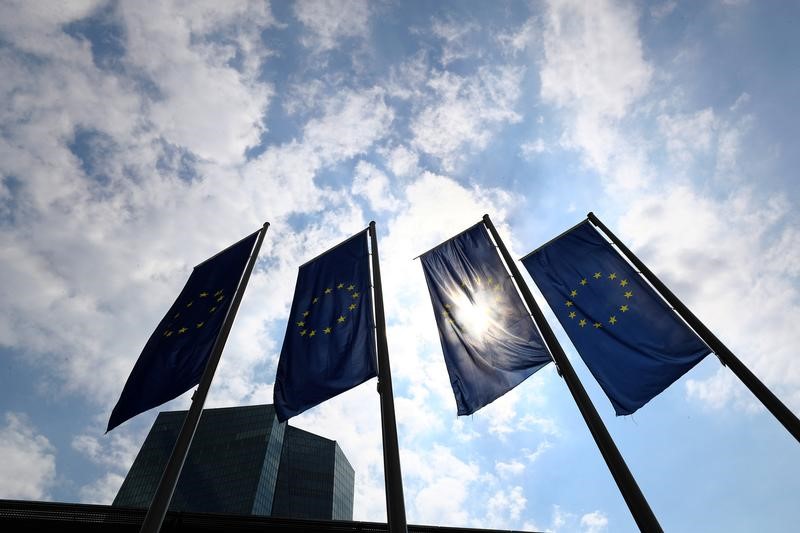By Francesco Canepa
FRANKFURT (Reuters) - Roughly 90 percent of the extra cash injected by the European Central Bank to boost the euro zone's economy is piling up in five of the bloc's wealthiest countries, an ECB study showed on Tuesday.
The paper cites "risk aversion" as one reason why the money is not flowing from Germany, France, the Netherlands, Luxembourg and Finland to the rest of the bloc, where some banks still rely on the ECB for cash.
This means banks in cash-rich countries are still reluctant to lend across borders nearly 10 years after the financial crisis broke out and despite ECB efforts to keep the euro zone together and growing.
"It seems that, following the financial crisis, a general increase in risk aversion and more conservative internal risk limits among banks may still be limiting factors for cross-border liquidity flows and the broad-based interbank redistribution of liquidity within the euro area," the 14 authors of the paper wrote.
The ECB has created some 1.5 trillion euros worth of excess liquidity -- cash that lenders deposit with the central banks minus mandatory reserves -- since 2015 via aggressive bond purchases and cheap long-term loans to banks.
For a graphic on excess liquidity, click on http://reut.rs/1T68P94
But the fact that the money keeps accumulating in the bloc's richest countries rather than flowing where it is needed the most risks undoing some of the ECB's efforts and shows the European Union's objective to create a banking union is still far from reached.
The study shows that 60 percent of the money spent by the ECB and national central banks on buying bonds ends up in Germany, where sellers, mainly UK banks, have their accounts. France accounts for a further 20 percent.
The authors note that this does not fully explain why the excess liquidity is then accumulating in just five countries.
They find this is due to external factors, including healthier banks attracting more depositors and new rules making bank-to-bank lending less attractive.

"Feedback from banks and further analysis suggest that regulatory requirements and banks' business models strongly influence the level of excess liquidity held at the individual bank level," the authors wrote.